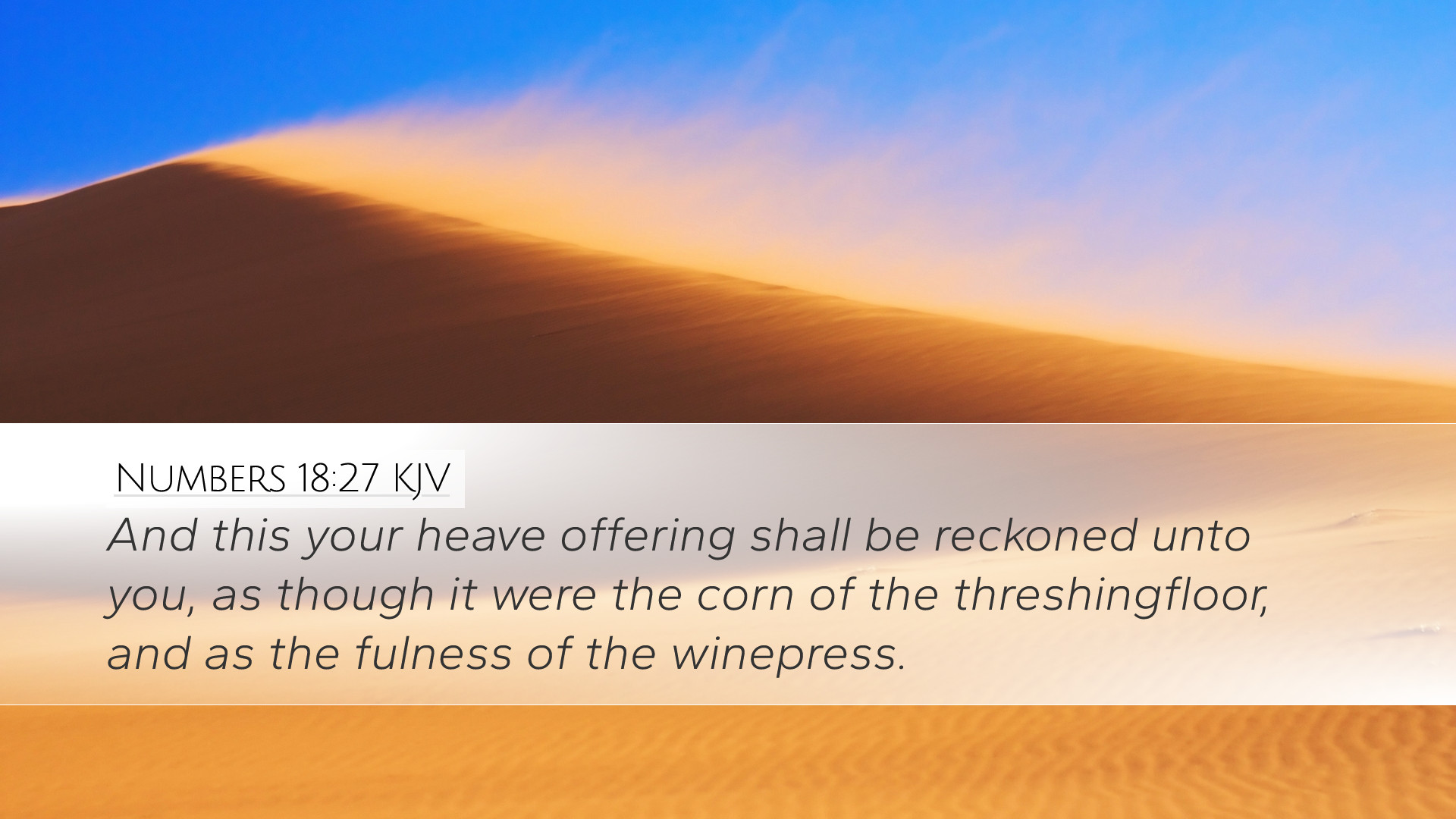Bible Commentary on Numbers 18:27
Numbers 18:27 states: "And your heave offering shall be reckoned unto you, as though it were the corn of the threshingfloor, and as the fullness of the winepress."
Introduction
This verse offers deep insights into the roles of the Levitical priests and the significance of offerings in the context of ancient Israelite worship. Understanding the importance of heave offerings helps to appreciate the sacrificial system instituted by God, particularly the distinction between what was given to the priests and what remained for the people.
Contextual Analysis
To grasp the meaning of Numbers 18:27, we must first consider its context within the Book of Numbers, which details the organization of the Israelite community during their journey to the Promised Land. The Levitical priests held a unique role, dedicated to serving in the tabernacle and facilitating the worship of Yahweh among His people.
Matthew Henry notes that the heave offering was a token part of the larger offerings that the people made, signifying that the entirety belonged to God. This verse specifically reassures the priests that their rightful blessings through these offerings are accounted for in divine terms.
Theological Significance
Albert Barnes emphasizes that the heave offering, which included a portion given by the people during sacrificial rituals, was essential for maintaining the sustenance and livelihood of the priests. Such offerings are not mere donations; they signify the acknowledgment of God as the ultimate provider and the recognition of the priests' unique role.
This divine ordinance illustrates a spiritual principle of reciprocity—what we give back to God is indeed more than just material offerings but signifies our recognition of His provision in our lives.
Priestly Roles and Responsibilities
In Adam Clarke's commentary, he elaborates on the duties of the priests and how their reliance on the heave offerings is established by God's ordinance. The priests were not given land or inheritance like the other tribes of Israel, emphasizing the need for the community's support through offerings. Clarke further indicates that their service in worship was crucial for the nation's relationship with God.
This interdependence between the priests and the people serves to highlight the communal nature of worship in Israel, where the well-being of both the spiritual leaders and the laity depends upon one another.
Ecclesiastical Applications
The relevance of Numbers 18:27 transcends the ancient Israelite context and speaks to contemporary church practices. Pastors and church leaders can draw parallels to the support systems established in modern congregations, emphasizing the spiritual and material responsibilities of the church members toward their leaders.
Furthermore, this verse calls on the faithful to recognize that their contributions to the church—their time, talents, and resources—are not mere acts of charity but vital commitments to the advancement of God’s work within their communities. Each offering is significant and becomes part of the tapestry of worship that supports the church's mission.
Conclusion
Numbers 18:27 serves as a reminder of the divine orchestration between God, the priests, and the community of believers. It embodies a theology of giving that emphasizes gratitude for God’s provisions and the vital role of spiritual leaders within the faith community.
As we reflect on this verse, may we be encouraged to give generously and cheerfully, recognizing that our offerings are a response to God's abundant grace and an acknowledgment of our collective identity as His people.


